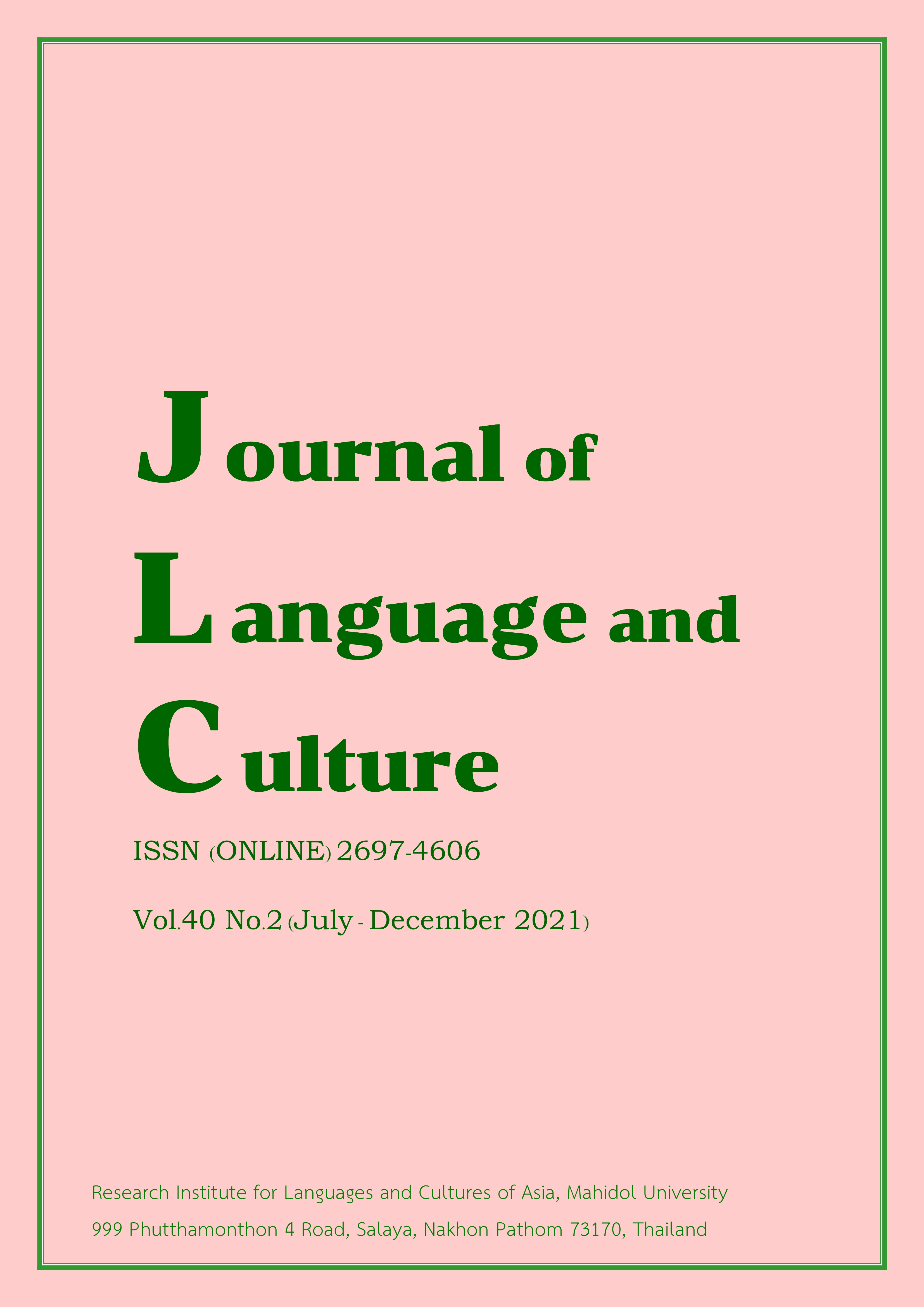Thai children’s new media use at home: Intra-family communication and reverse socialisation
Main Article Content
Abstract
The growth of new media has enabled children and young people to connect with the world in diverse ways. Their use of new media at home has also redefined intra-family communication and altered their role as an agent of socialisation within the family. This paper aims to present a review of the relevant literature on children’s use of new media in Thai families and provide an account of parental mediation strategies, describing how parents optimise their children’s use of new media at home. The paper also provides the cultural background of Thai families, specifically values, beliefs and forms of communication within that context, as well as the discussion of how digital competence becomes an important factor resulting in reverse socialisation within the Thai family.
The parental dilemmas revealed in this paper include parents’ perceived benefits (educational values) and concerns (excessive use of new media, exposure to online risks and harm, popularity of mobile phones) over their children’s use of new media technologies. Moreover, the social value of academic achievement encourages time restrictions of new media use as parents prefer their children to spend more time on studying or doing offline activities. However, the types of mediation implemented by parents are also determined by the age of their children, with more restrictive types used mainly with younger children. Also, Thai culture and social values, including an emphasis on parent-child ties, deference to authority and family values; a form of hierarchical culture which assumes that children and young people need to respect and obey parents; and the concept of “Bun-Khun” (gratitude), tentatively results in the way Thai parents choose to employ their parental mediation strategies. However, it is suggested that parents’ use of proactive mediation allow greater agency for the child to participate in dialogue and express their ideas regarding new media issues, and this was especially the case for young people who actively seek autonomy and independence.
The paper also highlights the importance of digital competence as a significant factor in parental mediation and children’s negotiation approaches to using new media. Essentially, this is an area in which reverse socialisation occurs within the Thai family context. The implications suggested include an emphasis on more effective support systems, which are needed in Thailand to guide Thai parents in developing their digital competence so that they can enable their children to maximize the benefits derived from the opportunities presented by new media technologies while still keeping them safe from online risks and harm.
Article Details
The articles featured in the Journal of Language and Culture (JLC) constitute academic works representing the viewpoints of the respective author(s). It is crucial to note that these opinions do not necessarily reflect those of the Editorial Board.
All articles published in JLC are released under the Creative Commons Attribution 4.0 International License (CC BY 4.0). This license grants permission for unrestricted use, distribution, and reproduction in any medium, provided proper credit is given to the original author(s) and the source.


